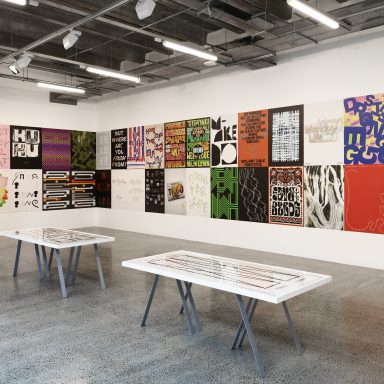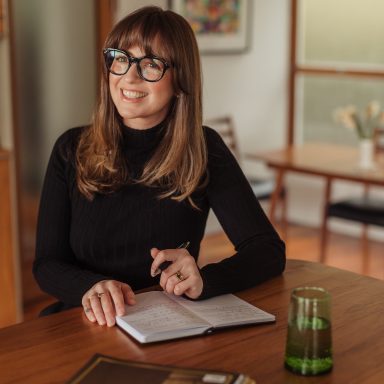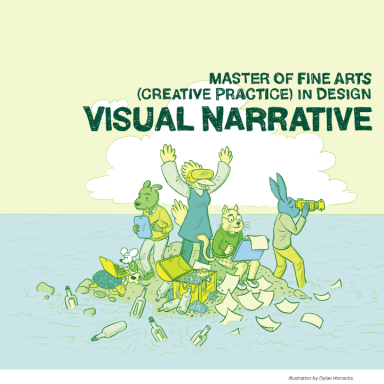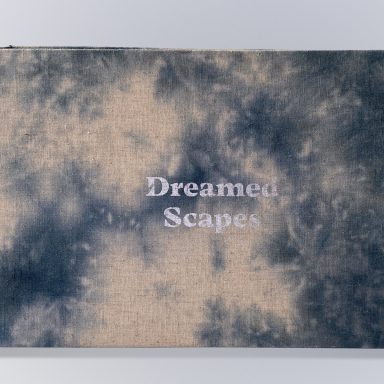Field Guide 2020: Be Kind Re:design
This Field Guide article is the third in this series of commissioned essays, interviews, podcasts and artworks to be published over 16 weeks on designassembly.org.nz and culminate in a downloadable PDF publication which will be distributed nationally.
We are incredibly grateful to Creative New Zealand who funded this 2020 Field Guide, which actively investigates, celebrates, nurtures and challenges current design thinking, methodology and practitioners in the Aotearoa design community. The project is “a multidisciplinary exploration of New Zealand’s post-COVID design practice”. It is produced by five authors, five illustrators, with art direction, design, editorial, publishing and production support from the Design Assembly team & RUN Agency.

Supported by Creative New Zealand
The artwork to accompany this essay is by Munro te whata a Māori, Niuean creative artist based in Auckland. He lives in The Gardens, with his wife and three kids. At the age of 16 Munro studied animation and began working as an inhouse animator on the hit TV show Bro’town. After 4 years there he went on to work for a show on Māori TV and began illustrating and teaching. Munro went back into studies and gained a Bachelor of Creative Arts from MIT and then started working as an in house illustrator for Kiwa Digital. Munro is now freelancing from home while also teaching art in schools.

Making small changes in the conversation
Be Kind Re:design
I have very vague marketable skills. It used to bother me a bit, being a nebulous mass of poorly defined competencies, until I started to see that the how was as important as the what. More on that later.
One thing I can do is spot patterns. And the original idea for this essay, conceived several months ago, suddenly feels part of an emerging pattern, weaving easily into a musing on life in a time of COVID-19 and BLM. Two big threads woven into the story of 2020 that we should, and must, tangle with.
But let’s step back from the big for a moment and look at the small. I spend a lot of time on Twitter. Too much time. It’s a perfect Venn diagram where my love of social media, my ability to write short and snappy messages, and my class-clown need to get a laugh overlap.

As a corrosive, reductive platform inhabited by democracy-twisting bots and bad actors, there are many reasons to hate Twitter. But there is one reason I love it. Year by year, tweet by tweet, follow by follow it’s opened my eyes to a whole range of different viewpoints. People who are not like me. Or are like me in some ways, very different in others. Different colours, genders, sexualities, life experiences. And through these peoples eyes, I came to understand the idea of microaggressions. The small cruelties inflicted daily on, disproportionately, people who don’t carry my privileges as a Pākehā, hetero, middle class and middle-aged(ish) man.
Early this year I gave a talk where I tried to tease out the idea of something that can counter microaggressions: microkindnesses. I imagined these as the small, daily, conscious acts that work to redress the world’s imbalances. Small choices that we can make, as creatives, to build a different status quo that is kinder to everyone. It was the idea I hoped to explore when I pitched this article – then the virus happened. My thoughts seemed small and superficial in the face of this world-changing wave of sickness, death, poor leadership and disastrous structural inadequacies.
Until we got (almost) out the other side. As I write, we enter Level 1 while so much of the world is still grappling with death, disorder and uncertainty. I would argue that we are here largely because of one potent message, repeated like a mantra throughout the pandemic: Be Kind. Kindness got Aotearoa through. Kindness is what will shape where we go next.

And just like that, my idea from the pre-COVID-19 world feels like maybe it does matter after all.
What does all this mean in a design context? I’m not a world changer, or a soapbox stander. But I do want to change the world. I want us all to change the world, for the better. However, I’ll be blunt: I believe that mainstream design and advertising communications (our industry) very rarely create significant cultural change. But I do think they play an important role in shoring up change and moving the middle closer to the line where cultural change happens. And that creates a space where all of us are able to act.

I know exactly what privilege accords me. As a copywriter working in design, advertising and communications, creating a voice is central to what I do. I find myself writing as a brand, an organisation, a product or a character. But I am always conscious that I do it from a certain position of privilege — middle class, Pākehā, male, yadda yadda. My voice fits the status quo. It’s comfortable and I could easily continue to do things ‘the way they’ve always been done’. Unfortunately, that would mean perpetuating microaggressions. And so, action by action, word by word, I look for how to apply kindness in my work so that I no longer perpetuate the kind of microaggressions that chip away at people who are different to me.
At this point, you could quite fairly be saying “big fucking deal”. There are incredible people, activists for their communities, who push change on the macro scale every day. Why do they need my token effort?
One answer I offer up relates to the theory of adopter categories. These were first named and described by sociologist Everett Rogers in his 1962 book Diffusion of Innovations. Everett’s research, identified five adopter categories — innovators, early adopters, early majority, late majority, and laggards.

Activists speak primarily to the innovators and early adopters, those willing to shift their view with relative speed. But for the next two categories, the early and late majority, the process is slower, more accumulative and often coaxed along by the mainstream entertainment and marketing media. And that’s where creatives in the design and advertising industries have the opportunity to reshape the status quo. Word by word, choice by choice, microkindness by microkindness.
My background is in mainstream advertising. Selling stuff. Greasing the capitalist cogs to keep the machine spinning. I’ve never been a big award winner or industry name, just a solid worker at the coalface trying to do a good job. I have never been the arguing kind, never the prima donna insisting that clients or co-workers do it my way or else. I’ve never viewed myself as a misunderstood genius with a world-changing creative vision.
But I have had moments where I could lean a little on the wheel of the ship, steering it out of familiar waters and hopefully dragging the audience along. I’ve refused to find a new voice artist for a TV ad because the Samoan actor we were using didn’t sound “Islander enough”. I’ve taken scripted, belittling jokes out of the mouth of a well-known media bigot and turned them into self-deprecating ones that had no victim other than himself. I’ve sat with representatives from a Māori organisation, apologised for my ignorance and asked to be educated, so we could do better work for them.

I’m not asking for a medal. I don’t expect anyone to be high fiving me for that one time I wasn’t unconsciously racist. These are small acts and I am late to the party in understanding why they matter. But they are the kind of microactions I am talking about, that accumulate and contribute to reshaping the status quo. They are actions which we can take, as creatives, every day if we run on conscious choices, not default settings.
I studied English at the University of Auckland about 20 years ago. Of all the texts I read, one that has stayed with me is a British play from the 1970s called The Comedians, by Trevor Griffiths. It’s about a group of would-be stand-up comedians, most mired in the easy laughs of misogyny, racism and homophobia, while one strives for some other comedy that punches up and isn’t based on chipping away at those ‘othered’ by mainstream British society.

What I took from The Comedians was the idea that how we relate to people different to us sits on a continuum. Somewhere on that line are the stereotype-based jokes that are one of the most familiar forms of microaggression. Go one direction on the continuum from there and you get to a place of kindness and acceptance. Go in the other direction, and microaggression becomes unkindness, unkindness becomes bigotry, bigotry eventually becomes hate.
I was reminded of that play recently by a moment on LinkedIn. The algorithm had thrown a post into my feed from someone in the UK advertising industry, which had been commented on by some local creatives. They were lauding an award winning ad from 1996, a massive production, cleverly scripted and brilliantly shot. Everyone commenting seemed to love it, so I thought I’d watch it for myself.
From the comments, it was clear the majority were taking it as face value, as a bit of fun. I was 21 when it was made and I remember the irony-laden, ‘likely lad’ kind of humour that was big at the time. But this ad, watching it in 2020? Under the smart script and lush production, it may as well have just been an anti-French Facebook rant from your pro-Brexit racist uncle. I struggled to imagine it being written here and now. It wasn’t that old, relatively speaking, but it felt terribly aged. A bit of mainstream media content, punching down, made for an audience that looked like the people who wrote it.
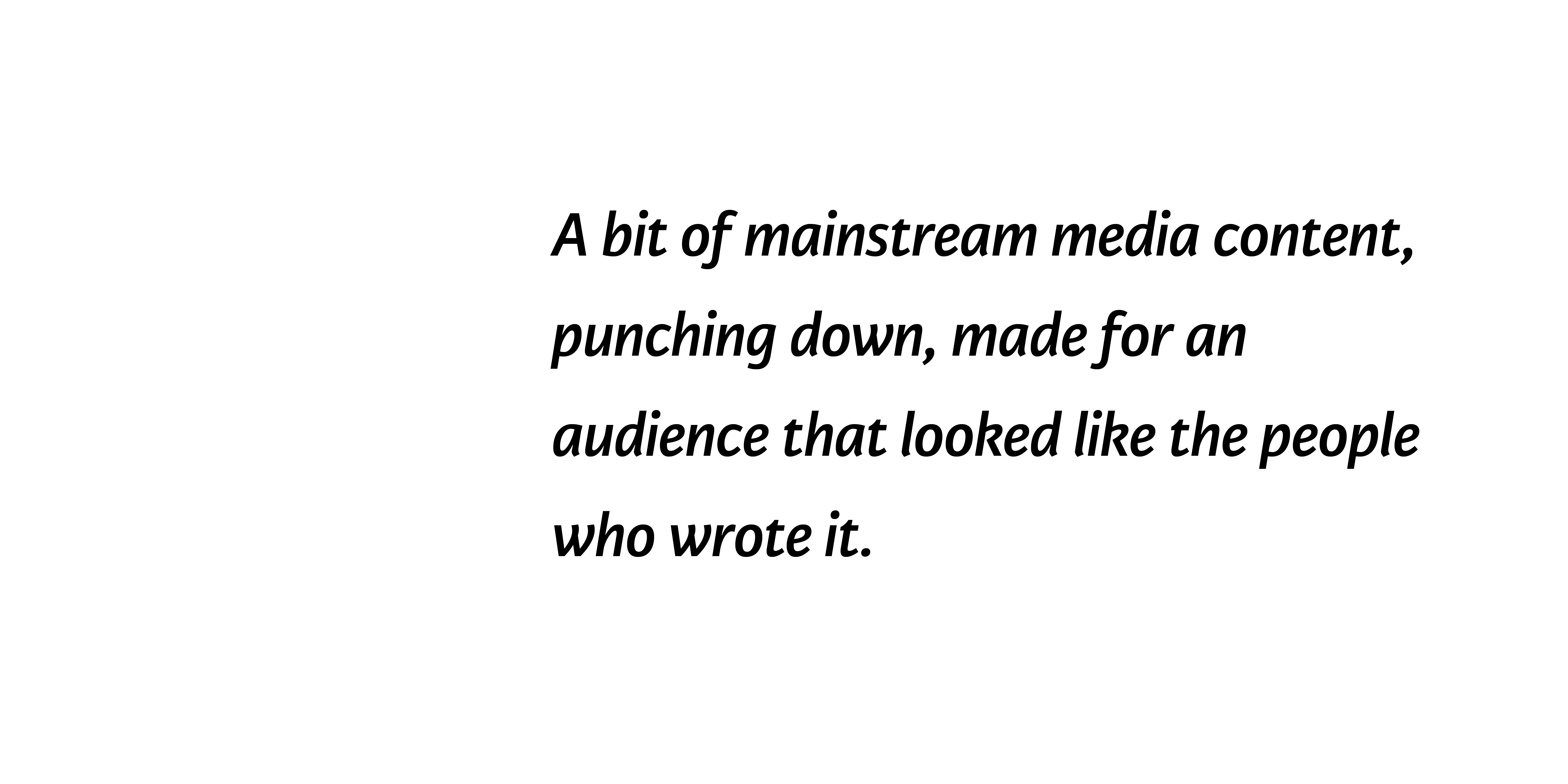
So back to now. Aotearoa in the age of COVID-19, Black Lives Matter and #armsdown. Where a part of our society still believe brown people are lesser, to be gay is a punchline, and that people on the wrong side of a power imbalance just need thicker skins. What do we do as creatives to shift the centre of the curve, to nudge the early majority and late majority so they drag the laggards along with them?
We be kind. We write jokes that punch up or point inwards. We show all kinds of people in our poster, so it’s a poster not a mirror. When we are asked to incorporate te reo Māori in our copy or whakairo into our designs, we make sure to do it appropriately. And when we don’t know how? We ask. We bring different eyes to the brief, not just our own. We hear through different ears. We make small changes in the conversation, to cement and normalise the changes that activists fight for. We design in kindness, one act at a time.

It doesn’t make us heroes. But it will help change the world.
As a copywriter working in design, advertising and communication, creating a voice is central to what Mark Easterbrook does. In this series of 4 essays, Mark explores how the design community brings voices forward, not just at the margins and within our own spaces, but into our national dialogue.
Mark is a freelance copywriter and creative director with 20 years experience in the communications and creative industries. He has written everything from hardcore retail advertising to poetic brand films to culturally sensitive government communications. He has an MA in Film, TV & Media Studies, was Programme Director of the Going West Writers Festival for four years, and is on the board of a charity that works with refugee and migrant youth.
